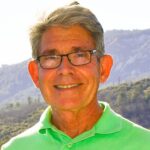Has happiness become a risk factor we should have a mitigation strategy for? As Covid-19 has brusquely demonstrated, sometimes we have little control over our personal situation – even on the best of days. In these unprecedented and unsettled times, there are numerous perils to fret about. Not surprisingly, stress, anxiety, and hopelessness are at historic levels.
The CDC Coronavirus website notes, “Pandemics can be stressful. Fear and anxiety about a new a new disease and what could happen can be overwhelming and cause strong emotions in adults and children. Public health actions, such as social distancing, can make people feel isolated and lonely and can increase stress and anxiety.”
Most of us take happiness for granted. We look outward for happiness in activities, experiences, possessions, and other people. Now that we are in a proverbial “hit the fan” moment, many people are lost and confused. We need to reorient ourselves and reexamine the risks & rewards of taking, or not taking, control of this fundamentally important, life-affirming issue.
Can happiness be cultivated? Can we find happiness independent of external conditions and the circumstances we are in? These are compelling questions. Fortunately, the evolving Science of Happiness is a dynamic field of study.
Happiness researchers, Rick Foster and Greg Hicks define happiness as” a profound, enduring feeling of contentment, capability, and centeredness. It is a rich sense of wellbeing that comes from knowing you can deal productively and creatively with all that life offers, both the good and the bad.”
Positive Psychology research suggests that our happiness capacity is set by Biology/Genetics 50%, Life Circumstances 10%, and Intentional Activity 40% (behavior, choices & thinking patterns).
Intentional activity is the zone where we can boost our baseline happiness. There are many proven skills and strategies to improve happiness, wellbeing, and life satisfaction. Happy people have troubles too; however, they bounce back from adversity faster, and are more resilient.
In their book, “How We Choose to Be Happy” Foster and Hicks identified and studied individuals who were profoundly happy people – happy over time, not just in the moment. To find them, they asked the locals, “who is the happiest person around?” Their study group was remarkably diverse, ranged in age from 16 to 101, included every socioeconomic level, and comprised a wide variety of belief systems, religions, and family backgrounds.
They discovered nine common choices made by the happiness group including accountability, identification (with what makes you happy), centrality (pursuing your passions), recasting (setbacks), options (opening to new possibilities), appreciation, giving, and truthfulness.
The foundational choice was Intention – “the active desire and commitment to be happy and the decision to consciously choose attitudes and behaviors that lead to happiness over unhappiness”.
Although we may have limited control of our circumstances, we always possess the capacity to visualize and build happiness through our intention and our choices. Do you want to build your level of happiness? Are you willing to take responsibility for this? Interested in learning new skills? This column, Happiness at Risk, will explore ideas, strategies, and practices to promote happiness and wellbeing in both our personal and our work lives.
Bio Stephen Villaescusa CERM
Stephen Villaescusa is long-time meditator and a Level 2 Unified Mindfulness Certified Meditation Teacher and Coach.
With more than 35 years of experience in operational excellence and change management, Stephen Villaescusa has a proven ability in assessing an organization’s needs and collaborating with key stakeholders to develop and manage transformation efforts. He had led or administered many multi-year, global engagements across a variety of industry sectors
From executives to team members, Stephen has trained and coached at all levels His expertise spans Enterprise Risk Management, Lean methods and tools, Six Sigma methodologies (process improvement and new product development), Rapid Improvement events, Voice of the Customer(VOC) and Change Management.
A creative, energetic and collaborative thinker, Stephen sees himself as a bridge for organizations, helping them go from where they are to where they want to be.
Stephen holds a Bachelor’s of Science in Business Administration from the University of Arizona. He has also completed graduate certifications at the UCLA Anderson School of Management and the Columbia Business School at Columbia University.
Email: stephenvillaescusa@outlook.com
LinkedIn: https://www.linkedin.com/feed/
